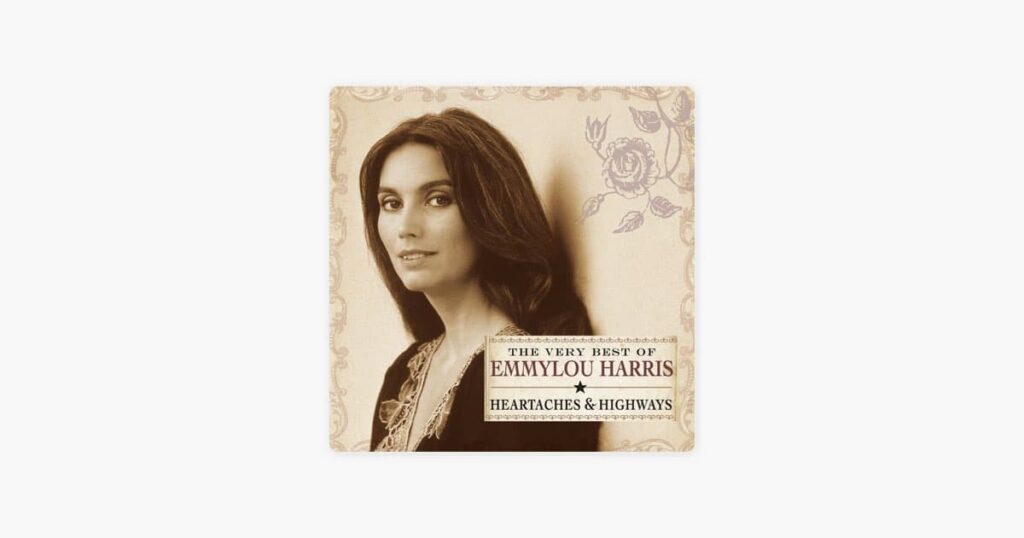
“Boulder to Birmingham”: A Haunting Elegy for a Cosmic Cowboy
There are some songs that, upon first listen, simply stop you in your tracks. They’re not just melodies and lyrics; they’re raw emotion poured into sound, a profound connection to the human experience. And for many of us, particularly those who remember the burgeoning country-rock scene of the mid-1970s, Emmylou Harris‘s “Boulder to Birmingham” is precisely such a song. It’s a poignant testament to grief and loss, a musical eulogy that continues to resonate with aching beauty decades after its release.
Released in 1975 on Emmylou Harris‘s breakthrough major-label album, Pieces of the Sky, “Boulder to Birmingham” stands out as a stark, deeply personal statement. While the album itself garnered critical acclaim and saw singles like “If I Could Only Win Your Love” climb the country charts, “Boulder to Birmingham” didn’t achieve the same commercial chart success as a standalone single. Its impact was far more profound, rooted in its sheer emotional weight and its unique place in music history. It became a beloved staple for her fans and a testament to her songwriting prowess, an essential piece of her legacy, often cited as one of the greatest country songs ever written, even making it onto Rolling Stone‘s “200 Greatest Country Songs of All Time” in 2024.
The story behind “Boulder to Birmingham” is as heartbreaking as the song itself. It was co-written by Emmylou Harris and Bill Danoff (of “Take Me Home, Country Roads” fame), and it serves as her deeply personal lament for the untimely death of her mentor, friend, and musical soulmate, Gram Parsons. Parsons, a visionary figure in country rock who had collaborated extensively with Harris on his albums GP and Grievous Angel, died tragically in September 1973 at the age of 26. His passing left a gaping void not just in the music world, but in Harris’s life and artistic direction.
For Harris, Parsons’ death was, in her own words, “like falling off a mountain.” She had been a struggling folk singer when Parsons discovered her, and their musical partnership had been a transformative experience, forging a unique blend of country, rock, and folk that would define her early career. The loss was not just personal; it was a profound blow to her artistic future. In the wake of his death, she poured her grief into this song, creating a lyrical landscape that perfectly captured the desolation and enduring love she felt. The song’s profound sense of sorrow and yearning is palpable, a raw wound laid bare for all to hear.
The meaning of “Boulder to Birmingham” is multi-layered, yet at its core, it is an elegy, a heartfelt expression of overwhelming grief and the desperate, often futile, wish to reconnect with a lost loved one. The imagery is vivid and stark: “I don’t wanna hear a love song / I got on this airplane just to fly / And I know there’s life below me / But all that it can show me is the prairie and the sky.”1 These lines convey a profound sense of detachment, a world rendered meaningless by loss, where even beauty offers no solace. The famous chorus, “I would rock my soul in the bosom of Abraham / I would hold my life in his saving grace / I would walk all the way from Boulder to Birmingham / If I thought I could see, I could see your face,”2 is a powerful declaration of a pilgrimage, an ultimate sacrifice to bridge the chasm of death. The distance between Boulder, Colorado, and Birmingham, Alabama—over 1,300 miles—becomes a metaphor for the seemingly insurmountable journey one would undertake, no matter the cost, for just one more glimpse of a cherished face.
What makes “Boulder to Birmingham” so enduringly powerful, especially for those of us who have weathered our own share of losses, is its unflinching honesty. It doesn’t sugarcoat the pain; it embraces it. Harris’s ethereal voice, often described as angelic, here carries the weight of a world-weary soul, a testament to her unique ability to infuse every note with genuine emotion. The spare, acoustic arrangement, characteristic of Brian Ahern’s masterful production on Pieces of the Sky, only enhances the intimacy and rawness of the performance, allowing Harris’s poignant lyrics and haunting vocals to take center stage.
In a career defined by an unparalleled ability to interpret songs and lend them new life, “Boulder to Birmingham” stands as a rare and precious gem: a song penned from her own heart, borne out of profound personal tragedy. It’s a timeless reminder that some emotions are universal, and that music, at its very best, can be a vessel for our deepest sorrows, offering solace and understanding in the face of the unbearable. For many of us, it remains a touchstone, a beautiful, aching tribute that continues to speak to the enduring power of love and loss.